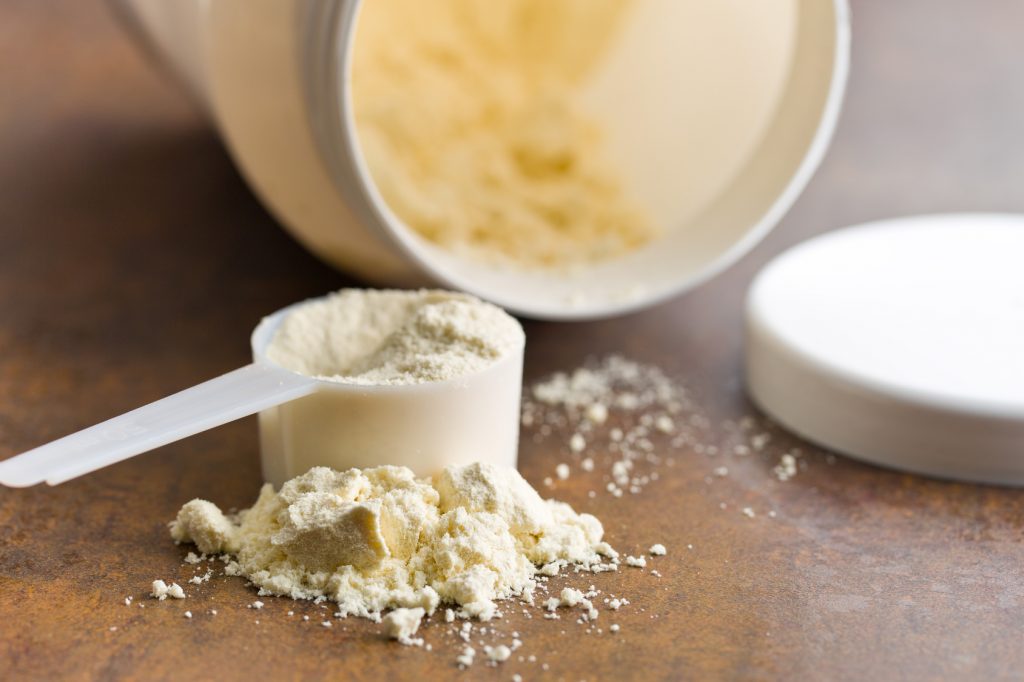We primarily think of protein in terms of its dietary role, as one of the three essential macronutrients alongside carbohydrates and fats. We’re told that consuming a certain amount of protein is needed to maintain good health, and beneficial for growing muscle mass and losing weight.
But while it’s perfectly possible to get all your protein from a wholesome, well-balanced diet, there are some cases in which supplementing protein may be appropriate and indeed quite convenient.
In this guide, we’re going to discuss exactly what protein is, its benefits, and why you may want to supplement your protein intake.
What is Protein?
Protein is not just something we eat; it’s also a fundamental building block of life. Our bodies, and indeed all organisms produce countless varieties of proteins without which they could never function.
Proteins are biological molecules that consist of amino acid chains. Amino acids themselves are either made in the body or broken down during digestion of dietary proteins. The body then uses these amino acids to synthesize all of its proteins and participate in a vast array of fundamental processes such as enzyme and hormone function, and cell growth, repair, transport and signaling.
Indeed, proteins are so important that the human body contains more than 10,000 different varieties, which constitute an average 17% of total human body weight — an amount second only to water.1
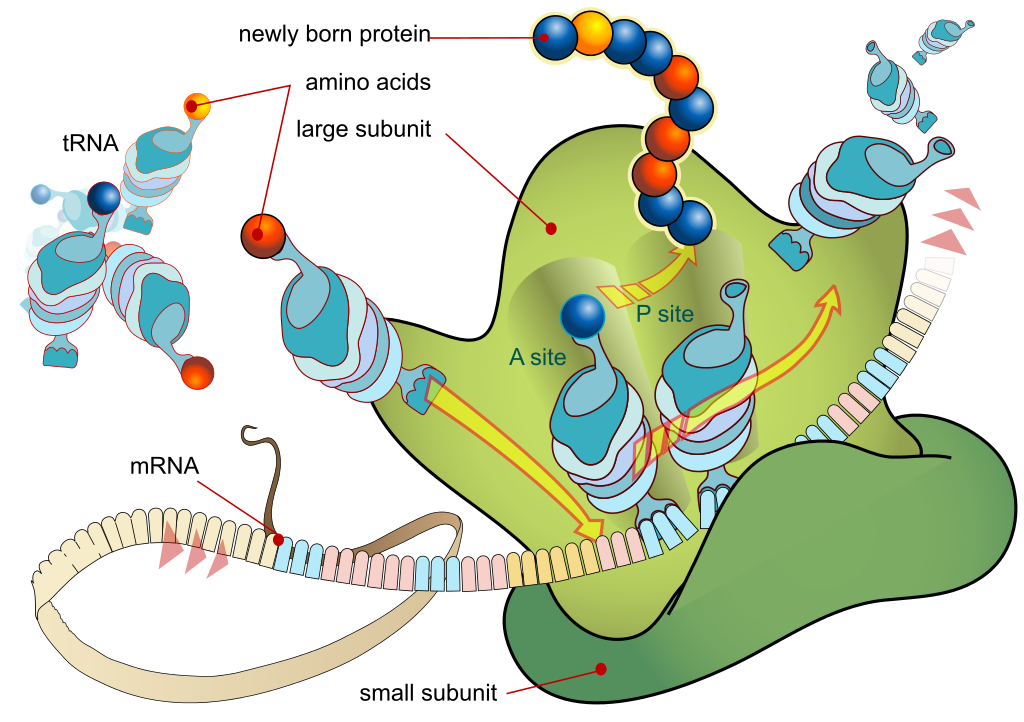
Dietary Protein
While protein is present in virtually all foods, its concentrations can vary by a large amount. Generally speaking, plant foods are low in protein, while animal products — such as meat, seafood, dairy, and eggs — are known for having the highest concentrations.
Moreover, most animal proteins are considered ‘complete’, meaning that they provide all nine essential amino acids at the right concentrations for healthy body function. By contrast, most plant proteins are incomplete.
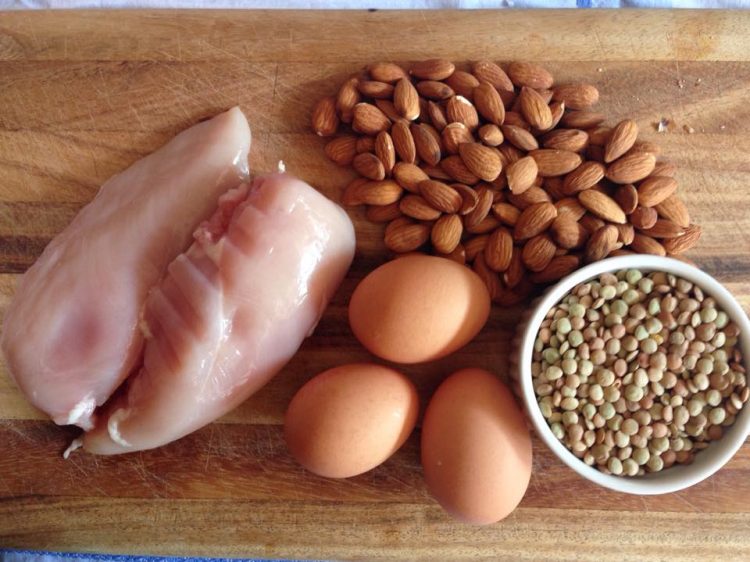
How much protein do I need?
- For sedentary adults, the Recommended Dietary Allowance (RDA) of protein is 0.8 g/kg body weight
- Low and moderate-intensity endurance activity may possibly raise protein requirements to 1 g/kg
- High-level endurance athletes may need 1.2 – 1.6 g/kg2
- For resistance training, research suggests a range from 1.3 – 1.8 g/kg, which may possibly have to be increased to 1.8 – 2.7 g/kg during a calorie-restricted (cutting) diet
- Generally speaking, experienced bodybuilders and other strength athletes should consume protein at the lower end of these ranges, while newer athletes and those undergoing particularly intense training should aim for the higher amounts
What are Protein Supplements?
Protein supplements usually come in the form of protein powders, which contain large concentrations of protein isolated from a specific source. Whey is the most popular source of protein powder, followed by casein and soy. Protein powders can contain anywhere from 50 to 90% protein by weight, which depends on the specific source and how it is processed. Most protein powders come in one of three forms:
- Protein Concentrate. The most popular form of protein powder which contains about 70-80% protein.
- Protein Isolate. A more purified version of a protein concentrate which isolates even more protein, resulting in concentrations of 90% and higher.
- Protein Hydrolysate. A form of protein concentrate or isolate where the proteins have been broken into their constituent amino acids, which makes them easier to absorb.
Protein Bars

Protein Benefits
Above all, the sufficient consumption of dietary protein is required for maintaining good health because nine essential amino acids — histidine, isoleucine, leucine, lysine, methionine, phenylalanine, threonine, tryptophan, and valine — cannot be made by the body. 3
Furthermore, adequate protein consumption supports weight loss and the maintenance and growth of muscle mass, which are not just beneficial by themselves, but also reduce the risk of developing cardiovascular and metabolic disorders such as diabetes and obesity.
Support of Muscle Mass

The body’s muscle mass is governed by net protein balance – the difference between the opposing processes of muscle protein synthesis (MPS) and breakdown (MPB). When this balance is positive, muscle is gained; when neutral, muscle is maintained; when negative, muscle is lost. In healthy, non-exercising people in their 20s to late 30s, these processes are even and muscle mass remains constant.
It is now a well-recognized fact that resistance exercise and protein consumption are the two biggest factors that can improve this balance by stimulating MPS. Moreover, it’s possible that protein consumption may also lower the rate of muscle protein breakdown. As such, supplementing protein is an effective way to maintain or grow muscle mass.
This effect particularly important for two groups of people: bodybuilders/strength athletes and older individuals.
Resistance training practitioners have to consume much more protein than sedentary individuals to provide themselves with enough amino acids needed to maximize muscle growth. While the question of just how much protein is needed to achieve this continues to be hotly debated, the most authoritative studies on the topic indicate that 1.3 – 1.8 g/kg body weight is sufficient.456

Meanwhile for older adults, supplementing protein is a useful strategy for managing sarcopenia – the age-related loss of muscle mass. Sarcopenia is hypothesized to be caused mainly by a blunted response to nutrients and resistance exercise, and may begin as early as the 4th decade of life.7
Support of Weight Loss
The second-biggest reason people choose to supplement protein intake is to support weight loss. A growing amount of clinical research evidence indicates that diets high in protein:8
- Increase the feeling of satiety
- Reduce subsequent caloric intake
- Improve fat loss
- Prevent decreases in lean body mass during caloric restriction
Researchers recommend that weight loss diets should provide fewer calories than needed to sustain current body weight, and have around 20-30% of total calories come from protein.910
Other Benefits
Protein from specific sources may also hold unique advantages, such as reduced blood pressure, enhanced antioxidant levels, and regulation of blood lipids such as cholesterol. A detailed discussion of such benefits is found below.
Why Supplement Protein?
While it’s best to just get all your protein from its tried-and-true wholesome sources, the bottom line is that in many cases it can be more convenient to use a protein powder supplement. The most popular reasons include:
For Resistance Training
Protein powders are most popular with individuals undergoing resistance training, since they require considerably higher protein intake than sedentary individuals to maximize muscle growth. Although it’s certainly possible to get all your protein from whole foods, resistance training is the #1 reason people supplement protein.
In addition, protein supplements can help resistance athletes meet their specific caloric intake, since the most popular way of building muscle includes alternating bulk (caloric surplus) and cut (caloric deficit) diets. When cutting, a protein supplement can help by providing just the protein with very few extra calories, unlike whole foods.
For Vegetarians/Vegans

According to a 2011 study there are as many as 16 million vegetarians (half of whom are also vegan) in the United States alone.11 Given that vegetarians don’t eat any animal foods except dairy and eggs, and vegans don’t eat any animal foods period, it can be difficult achieve optimal protein intake levels. This is especially the case for vegetarian bodybuilders and strength athletes.
And even if you do manage to get enough protein, it can still be difficult to get sufficient essential amino acids from plant sources as most of them are considered incomplete.
For Overall Convenience
Finally, it’s important to mention a number of convenience benefits of protein powder supplements:
- Cheaper cost. In some cases, it can be cheaper to buy protein powder than purchase protein-rich foods such as meat.
- Easier to count. When you’re taking a supplement you know exactly how much protein/calories you’re getting, which is useful when trying to meet specific protein/calorie goals.
- Easier to prepare. Unlike the large majority of protein-rich foods, protein supplements do not require any cooking or preparation – you simply mix the powder with water/milk or your desired ingredients.
- Taste. Consuming the same protein-rich foods every day can make eating a dull affair, whereas most protein supplements can taste quite nice on their own or when mixed together with fruits or other ingredients.
Supplemental Protein Sources
Protein powders come from many different sources, but the most popular ones are: whey, casein, soy, hemp, pea, rice, pea, and egg. It’s important to highlight the unique qualities of these individual protein sources to choose the best one for your specific needs.
Whey

Whey is a protein-rich component of milk left behind as a liquid during cheese-making, which can be further processed to produce protein powder. Whey is the most popular and most researched form of supplemental protein, and is also considered the best at supporting muscle mass, thanks to a number of key characteristics:
- High quality. Metrics that judge protein sources on their essential amino acid profile, and the digestibility and bioavailability of the amino acids rank whey as the best source alongside eggs.
- High leucine levels. Whey is particularly known for containing the highest leucine levels of any food. Leucine is unique among amino acids for its ability to directly stimulate muscle protein synthesis, and may also possibly suppress muscle protein breakdown.12
- Strongest MPS effect. Whey protein is digested and absorbed easily and quickly, and has been shown to result in a much larger acute (up to 3 hours after consumption) spike in muscle protein synthesis than other protein sources.13
In addition, whey protein also provides a number of unique benefits, such as helping maintain healthy blood pressure, regulation of blood lipid (fat) concentrations, and support of the body’s antioxidant defenses. Finally, whey also appears to be better than other protein sources at promoting fat loss, although more research is needed to say anything conclusive. More on Whey Protein
Casein

Casein is the second major type of protein present in milk. Although whey is more popular for supplementing resistance training, research has shown that casein is just as effective at increasing muscle mass. Similar to whey, casein is a complete source of protein and seems to have a beneficial effect on elevated blood pressure.
The main unique quality of casein is that it is a “slow” protein because it takes longer to digest and absorb, causing a prolonged, steady release of amino acids. Researchers hypothesize that this quality may make casein better than whey at supporting muscle growth during prolonged fasting periods, such as during sleep. More on Casein Protein
Soy
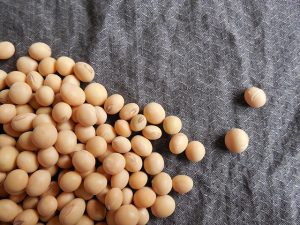
Soy protein comes from soybeans, one of the few plant sources of complete protein. Soy protein is popular among vegans and vegetarians as an alternative to animal protein sources, and has been shown to support cardiovascular health by regulating blood pressure and blood lipids.
It is also popular among postmenopausal women due to containing isoflavones – natural compounds that appear to have similar activities to the female sex hormone estrogen. However, research evidence of soy’s purported post-menopause benefits remains mixed.
Hemp
![Hemp seed. By Kurt Stüber [GFDL], via Wikimedia Commons](https://supplementsinreview.com/wp-content/uploads/2016/09/hempseed-300x300.jpg)
Hemp protein supplements are popular with vegans and vegetarians, and considered a more wholesome source of protein due to also containing high concentrations of essential omega-3 and omega-6 fatty acids and fiber, which have a variety of health benefits. More on Hemp Protein
Pea
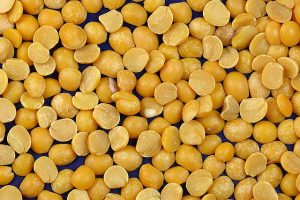
Pea protein is derived from dried field peas and is one of the newest sources of protein on the market. Pea protein is popular with individuals who prefer non-animal protein supplements, and also has the advantage of not containing any major allergens such as dairy or soy.
Early research indicates that pea protein is about as effective as whey and other animal proteins at supporting muscle hypertrophy during resistance training and promoting satiety to help with weight loss. More on Pea Protein
Egg
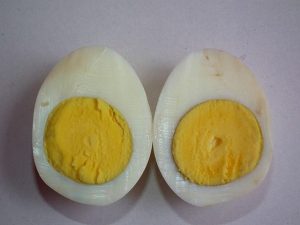
Egg protein powder is typically isolated from chicken egg whites. Eggs are considered the highest quality source of protein, meaning that it is easy to digest, has an ideal essential amino acid composition, and is utilized effectively by the body. Similar to pea protein, eggs are another good option for people with sensitivity to dairy or soy. More on Egg Protein
Do Protein Supplements Have Side Effects?
Protein powders may cause minor side effects in some people, especially when taken at high doses (2.3 g/kg). The most common side effects are bloating, nausea, and stomach cramps. In addition, individuals with sensitivities to whey, soy, or other allergenic compounds may experience allergy symptoms.
What is the Best Protein Source?
As with most things in life, the question of what the best choice is depends on your specific situation. For example, vegans and vegetarians would naturally opt for plant protein sources.
Having said that, whey protein is undoubtedly the best universal choice, since it combines a number of useful qualities:
- it’s a complete and easy-to-digest protein
- It is one of, if not the best protein source for building muscle and supporting weight loss
- it provides extra health benefits
On the other hand, the remaining proteins tend to have more specialized uses:
- Soy protein may be a good choice for individuals looking to support their cardiovascular health and postmenopausal women
- Hemp powders are a good choice when you’re looking to not just supplement protein, but support overall health by increasing your fiber and essential fatty acid intake
- Pea protein is a good choice for people with sensitivities/allergies to dairy or soy
- Casein may be a good addition to whey for bodybuilders and other strength athletes, taken specifically before sleep or between meals to take advantage of the slow amino acid release
- Egg protein is a good choice if you’re just looking for the general benefits of protein, and may not tolerate dairy or other protein sources
In addition, the concept of protein quality can also offer some useful information to make your choice easier.
Protein Quality
Different protein sources have different amino acid compositions, which could influence the way they affect the body. Because of this, nutritionists devised the concept of protein quality to rate the essential amino acid composition and the digestibility and bioavailability of amino acids from different protein sources.15
Put simply, protein quality rates how well the body uses protein from a given source. The four most popular metrics to rate protein quality are:
- Protein Efficiency Ratio (PER). Determined by measuring the growth of animals fed the protein.
- Biological Value (BV). Determined by measuring how effectively the body absorbs and utilizes the protein.
- Net Protein Utilization (NPU). Similar to BV, but different measurement technique.
- Protein Digestibility Corrected Amino Acid Score (PDCAAS). Determined by the protein’s essential amino acid composition and ability to be digested. This metric is currently the most respected alongside the BV.
Protein quality of the most popular protein supplements
| Ranking Metric | Whey | Casein | Soy | Egg | Pea | Hemp |
| PER | 3.2 | 2.5 | 2.2 | 3.9 | ~1.42 | Unknown |
| BV | 104 | 77 | 74 | 100 | ~65 | Unknown |
| NPU | 92 | 76 | 61 | 94 | ~61 | Unknown |
| PDCAAS | 1.0 | 1.0 | 1.0 | 1.0 | 0.69 | 0.46 |
While protein quality is certainly useful to keep in mind, it’s also important not to overthink it. After all, you won’t be getting all of your protein from a single source.
Conclusion
Dietary protein is key to maintaining good health, and there are some situations where you could struggle to get enough. But despite what the supplement industry might say, protein supplements are not superior to whole foods, and not required to reach your optimal protein intake levels.
Having said that, time is a precious commodity for all of us, and that is the biggest reason why protein supplements can be so useful – they’re convenient.
For example, a bodybuilder consuming a large amount of calories and protein would find it more convenient to take a protein shake after his workout instead of busting out a plate full of chicken in the middle of the gym.
To sum things up: if you feel like protein supplements will help you reach your specific protein intake goals, then go for it. The extra health benefits of some protein powders are just the cherry on top.
